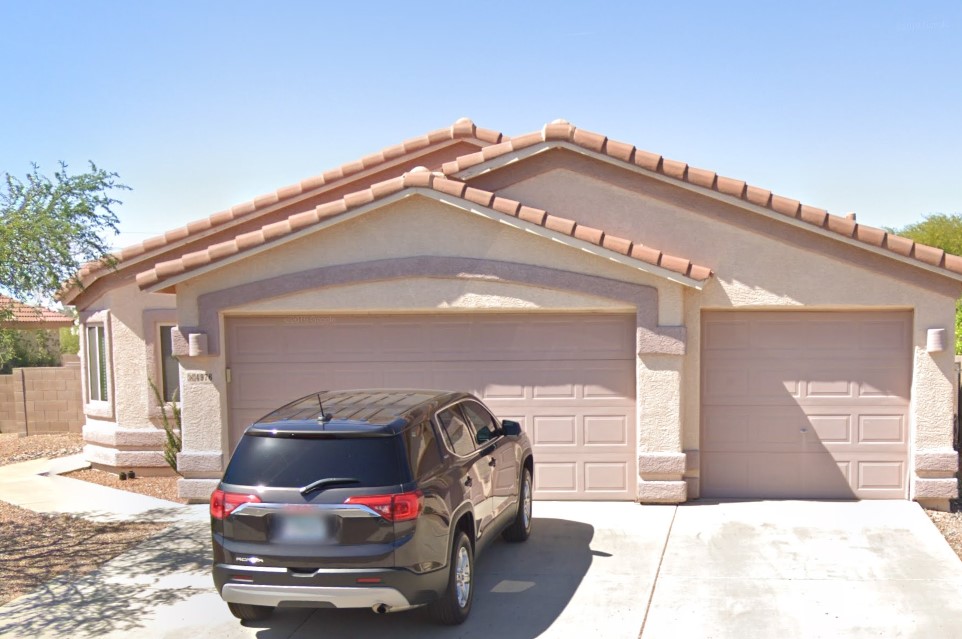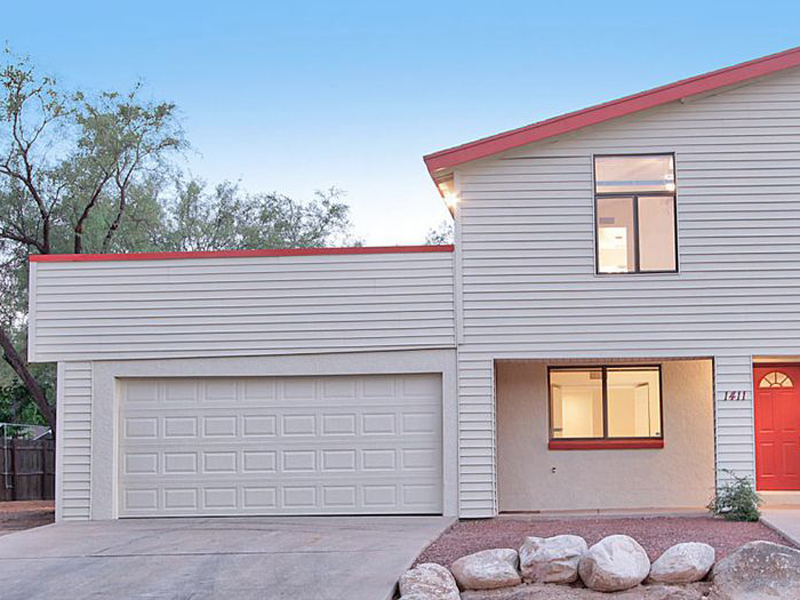My Garage Door Will Not Open - 10 Quick Fixes & Solutions
Is Your Garage Door Stuck? Right here's What to Do Initial
When your garage door will not open, begin with these crucial safety and security checks before trying any repair services. First, make sure no one is standing near the door which vehicles are clear of the opening. Seek obvious signs of damage like busted panels, curved tracks, or hanging cables. If you see a snapped springtime or drastically harmed elements, quit right away and call a specialist—-- these repairs require specific tools and know-how to handle securely.

Inspect These 6 Points Prior To Calling an Expert
Before thinking you need costly fixings, run through this fast diagnostic checklist that resolves most garage door problems:
-
Source of power: Confirm the opener is connected in and the electrical outlet is functioning
-
Remote batteries: Change dead batteries in your remote
-
Manual lock: Inspect if someone accidentally engaged the manual lock
-
Obstructions: Look for particles obstructing the door's course or sensors
-
Emergency situation launch: Make certain the red emergency situation cable hasn't been drawn
-
Circuit breaker: Confirm the garage circuit hasn't tripped
These easy checks resolve approximately 70% of garage door problems without requiring professional intervention.
10 Usual Reasons Your Garage Door Won't Open
Recognizing why your garage door opener isn't working helps you select the ideal option. Here are one of the most frequent causes home owners experience:
Dead remote batteries stand for the simplest fix—-- when batteries pass away, the remote can not send out signals to the opener. Power outages or stumbled breakers reduced electrical energy to the electric motor. Broken springtimes prevent the door from lifting appropriately and call for instant expert interest. Sensing unit misalignment reasons security systems to obstruct door procedure. Track blockages quit rollers from relocating efficiently. Motor overload triggers automatic shutoffs when the opener identifies resistance. Limit button issues puzzle the opener concerning door placement. Cable television damages interrupts the training system. Weather-related problems influence door movement during extreme temperature levels. Part wear from age progressively reduces system performance.
Problem # 1: Dead Remote Control Batteries
When your wall surface button functions yet your remote doesn't, dead batteries are generally the perpetrator. Most garage door remotes make use of either 3-volt lithium or 12-volt alkaline batteries. Eliminate the back cover of your remote and examine the battery type. Replace with fresh batteries and test the remote. If it still does not function, you might require to reprogram it to your opener. Consult your opener's handbook for details reprogramming instructions, as the process varies by producer.
Trouble # 2: Power Supply Issues
Garage door power problems commonly stem from loose connections or tripped circuits. Inspect that the opener is securely connected into its outlet—-- resonance can loosen links gradually. Check the outlet with another tool to verify it's working. Examine your home's breaker box for stumbled circuits, specifically if you've experienced storms or power changes. GFCI outlets may have tripped and need resetting. If the opener has power but will not respond, the problem most likely lies elsewhere in the system.
Issue # 3: Broken or Damaged Springs
Damaged garage door springtimes are amongst one of the most dangerous parts to deal with. If you hear a loud bang from your garage or observe the door really feels incredibly heavy when trying to lift by hand, a spring has actually likely broken. Torsion springs run flat above the door, while extension springs sit on either side. Never try spring repair services on your own—-- these components save significant stress that can trigger serious injury or death. Specialist substitute generally sets you back $150-$300 yet guarantees your security.
Trouble # 4: Obstructed Safety And Security Sensors
Modern garage doors feature security sensing units that protect against closure when items are identified. These sensors can quit the door from opening if they're filthy, misaligned, or blocked by particles. Tidy sensing unit lenses with a soft fabric and ensure nothing blocks the unseen beam in between them. Check that sensors are effectively lined up—-- many have indicator lights that show link standing. Sensor troubles frequently fix with basic cleansing and modification.
Trouble # 5: Track Obstructions or Damages
Garage door tracks guide rollers as the door moves up and down. Dirt, particles, old oil, or tiny things can jam the system. Examine tracks aesthetically and get rid of any blockages with a brush or towel. Seek dents, flexes, or warping that could impede smooth operation. Small track changes are feasible for convenient property owners, but considerable damage needs expert repair work to prevent more problems or safety threats.
Problem # 6: Garage Door Opener Motor Issues
When the garage door electric motor runs but the door does not relocate, numerous concerns could be responsible. The electric motor might be overwhelmed and shutting down as a safety measure. Equipment wear, particularly in older devices, can protect against proper procedure. Chain or belt drive problems affect power transmission. If you hear uncommon grinding, clicking, or humming sounds, quit using the opener instantly. Electric motor repair services frequently cost greater than substitute, particularly for units over one decade old.
Detailed DIY Troubleshooting Guide
Follow this organized approach to garage door fixing while prioritizing safety throughout the process:
Action 1: Check the wall surface button first. If it works however the remote doesn't, concentrate on remote problems. If neither works, examine power supply.
Step 2: Take a look at the hand-operated launch cable. If it's been pulled, the opener is disengaged from the door. Press the cart back to reconnect.
Action 3: By hand evaluate the door by disengaging the opener and attempting to raise the door by hand. It needs to relocate efficiently and remain in location when half-open.
Step 4: Inspect visible parts for damage, paying unique focus to springtimes, cords, and tracks.
Step 5: Check all safety attributes including sensing units, limit buttons, and auto-reverse functions.
Action 6: Test different controls (remote, wall surface switch, keypad) to separate the problem source.
Constantly use shatterproof glass and job handwear covers when performing evaluations, and never attempt repair services on springs or high-tension components.
When to Call an Expert vs. do it yourself Solutions

Knowing when to call a garage door specialist versus trying DIY fixings protects both your safety and security and your pocketbook. Take care of these problems on your own: dead remote batteries, power supply troubles, small track cleansing, sensing unit cleansing and positioning, and basic lubrication.
Never ever attempt these repairs on your own: springtime substitute or change, wire fixings, major track adjustment, electrical wiring problems, opener motor replacement, or any type of repair service entailing high-tension components. Specialist professionals have actually specialized tools, training, and insurance policy to manage hazardous repairs securely.
Consider fixing prices versus replacement prices, particularly for doors over 15 years of ages. Modern garage doors supply far better safety and security attributes, energy efficiency, and dependability than older designs.
Emergency Situation Garage Door Solutions
When you're stuck to a garage door that won't open and need instant accessibility, adhere to these emergency treatments:
Guidebook Procedure: Pull the red emergency situation launch cord to disengage the opener. This enables hands-on procedure yet calls for correct method to avoid injury. Lift the door slowly and uniformly, making use of leg muscles instead of your back. Many domestic doors evaluate 100-150 pounds, making them convenient for most grownups.
Momentary Fixes: If the door opens up manually however will not stay up, prop it open with sawhorses or clamps—-- never ever utilize your body or lorries as supports. For doors that won't close totally, make sure the opening is protected if you need to leave.
Emergency Solution: Numerous garage door business offer 24/7 emergency situation solution for scenarios entailing safety issues, trapped cars, or total system failings. While more pricey than regular solution phone calls, emergency situation repairs provide instant options when required most.
Safety Warning: What NOT to Do
Garage door safety needs comprehending harmful fixings that ought to never ever be attempted by homeowners:
Never attempt to fix springs—-- they store enough energy to trigger fatal injuries when they snap or are improperly handled. Do not require a stuck door—-- this can damage the opener, tracks, or door panels, creating a lot more pricey problems. Avoid bypassing security attributes—-- sensing units and auto-reverse mechanisms prevent severe injuries and residential property damages.
Do not neglect strange noises—-- grinding, scuffing, or banging audios show issues that aggravate over time. Never ever utilize the door if cable televisions are frayed or damaged—-- the door could fall suddenly. Do not attempt electric fixings unless you're a certified electrician—-- garage door openers use both 120V house existing and low-voltage control circuits.

Precautionary Upkeep to Avoid Future Problems
Normal garage door maintenance avoids most usual troubles and expands system life expectancy substantially:
Regular monthly Tasks: Visual inspection of all components, examining auto-reverse safety features, checking and tightening up equipment, and cleaning tracks and sensors.
Quarterly Jobs: Lubing all relocating parts with suitable garage door lubricant, screening handbook operation, and inspecting weather sealing.
Yearly Jobs: Specialist evaluation and tune-up, spring modification if needed, and opener upkeep consisting of belt or chain modification.
Seasonal Jobs: Preparing for climate extremes, examining insulation, and readjusting opener setups for temperature level adjustments.
Regular maintenance expenses far less than emergency repair work and ensures trusted procedure year-round.
Garage Door Won't Open FAQs
Why will not my garage door open with the remote but deals with the wall surface switch?
This generally indicates dead remote batteries, signal interference, or the demand to reprogram the remote. Examine batteries first, then consult your opener handbook for reprogramming instructions.
Can I by hand open my garage door if the power is out?
Yes, pull the red emergency launch cable to disengage the opener, then lift the door by hand. Be gotten ready for the door's full weight and lift with proper method to stay clear of injury.
How do I know if my garage door springtime is damaged?
Indications include a loud bang from the garage, the door sensation extremely hefty when lifting by hand, visible gaps in the springtime coils, or the door only opening a couple of inches prior to stopping.
Is it safe to use my garage door if it will not open completely?
No, partial operation indicates mechanical troubles that might aggravate instantly. Stop utilizing the door and have it examined by a specialist to prevent further damages or injury.
What should I do if my garage door opens however will not close?
Inspect safety sensors for blockages or imbalance, check out the tracks for particles, and examine the auto-reverse feature. If these do not fix the problem, speak with a professional.
Just how much does it set you back to fix a garage door that won't open up?
Expenses differ widely depending upon the problem: quick fixes for garage door not closing properly battery substitute ($5-$10), expert medical diagnosis ($50-$100), spring substitute ($150-$300), or opener replacement ($200-$500).
Can weather influence my garage door's capacity to open up?
Yes, severe cold can thicken lubes and impact steel components, while warm can trigger expansion concerns. Many troubles settle as temperatures stabilize, but persistent problems might require professional interest.
Why does my garage door open a few inches after that quit?
This normally shows busted springs, limitation switch issues, or track blockages. The opener's safety features stop procedure when resistance is detected, protecting against damages to the motor or door.
Obtain Specialist Aid for Complex Problems
When DIY repairing does not solve your garage door problems, specialist technicians offer the know-how and tools required for risk-free, enduring repairs. Certified professionals detect concerns accurately, use manufacturer-approved components, and offer warranties on their work.
Expert services consist of: extensive system examinations, spring and wire replacement, opener fixing and replacement, track positioning and replacement, electrical troubleshooting, and emergency situation solution calls.
What to anticipate: ahead of time pricing, licensed and insured service technicians, same-day service for several fixings, and follow-up maintenance referrals.
Most garage door firms provide cost-free price quotes for significant repairs and can give prompt options for immediate problems influencing home security or vehicle accessibility.
Obtaining Your Garage Door Working Again
A garage door that will not open up does not need to destroy your day or break your budget plan. Beginning with basic troubleshooting steps like examining power, changing batteries, and examining for evident obstructions. Lots of problems have fast do it yourself services that recover typical operation within minutes.
However, recognize when expert help is needed—-- especially for spring-related problems, electric problems, or complex mechanical failures. Trying hazardous fixings yourself risks serious injury and typically produces extra expensive problems.
Routine upkeep prevents most garage door problems and ensures trusted procedure for many years to come. When problems do occur, address them immediately to avoid more costly repair work and preserve your home's protection and comfort. Whether you need a straightforward battery replacement or full system overhaul, solutions exist to obtain your garage door working efficiently again.